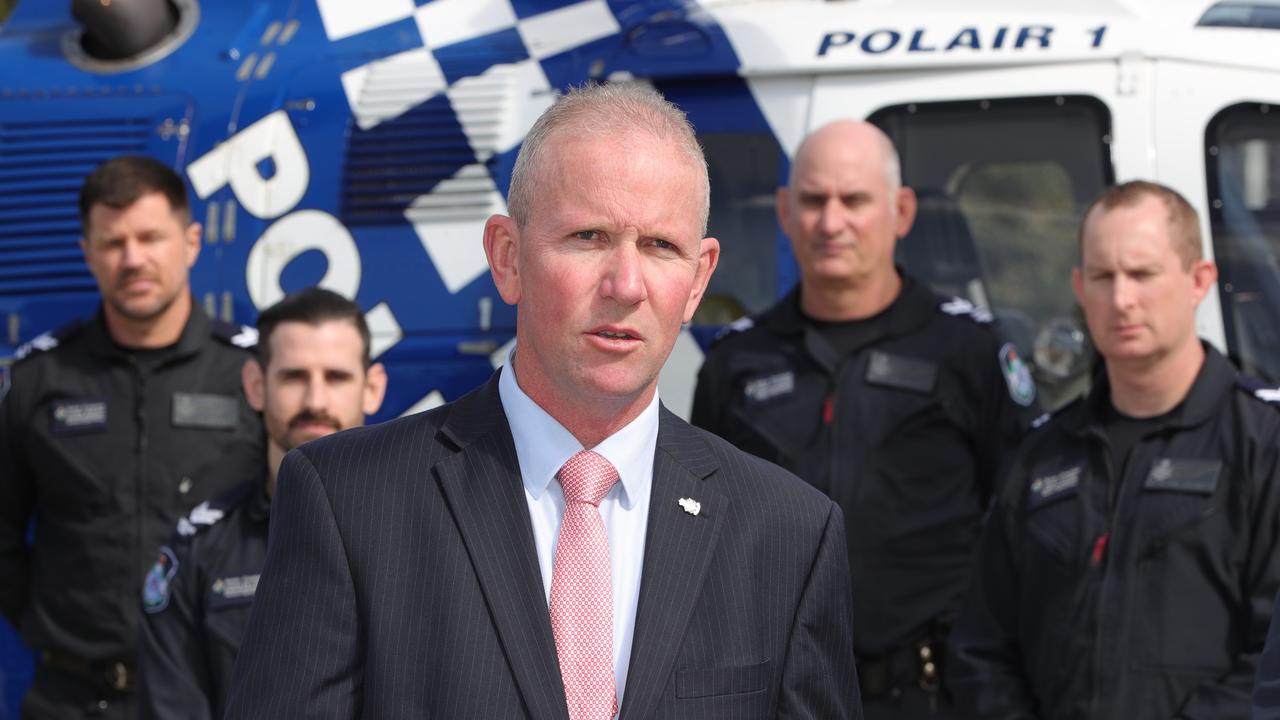Queensland Police Union Ian Leavers: ‘Mental health just as important as good physical health’
There are no questions asked about physical injuries police officers attain on the job, and neither should there be about psychological injuries, writes Ian Leavers.
Opinion
Don't miss out on the headlines from Opinion. Followed categories will be added to My News.
When I joined the Police Service, or “Police Force” as it was then, I willingly swore the oath to protect and serve the people of Queensland.
When I started over 30 years ago I had visions of myself kicking down doors to save children.
I did not imagine seeing children flung from cars at the scene of a traffic accident. I could not see myself attending a home to diffuse a domestic situation. I did not envisage standing between two warring partners, wondering if either of them had a weapon they could use on each other or me.
I had visions of myself as a calm, competent presence who would efficiently deal with whatever came my way, rather than a stressed and exhausted man in a blue uniform who wondered if the next job might break him.
In many ways, policing is a very rewarding career, but it can also be dangerous, tragic, and traumatic. Just one incident or an accumulation of events can cause mental health issues.
Just like the rest of the community, police officers deal with danger and tragedy in different and individual ways, but unlike the rest of the community, it is a police officer’s job to continue to confront these dangers and tragedies day in, day out.

The situations a police officer must deal with, the horrors they witness and the ever-present reality of life-threatening danger is a part of the job.
Queensland Police officers are highly trained, efficient professionals.
But they are also human. They have families, children, and a home life they hope to return to at the end of each shift.
They take much of what they deal with in their stride: logging information, helping victims, and jailing perpetrators. They don’t tend to talk too much about what they go through, even on an ordinary shift, because for them it’s just the job.
Some police are dealing with their own personal situations, and they certainly don’t want to burden family and friends with anything worrying them.
When I was working in the Ipswich District I was part of the Traffic Accident Investigation Squad that attended incidents across the area. I saw many horrific scenes along the Brisbane Valley Way, Cunningham Highway and Warrego Highway out toward Toowoomba, and still to this day I have flashbacks to some of them.
I cannot drive along these sections of road without seeing a body contorted in an unnatural way in the back of my mind. I imagine it is something I will deal with for the rest of my life.
Two years ago my son was 16 years old and a passenger in a car accident and he’s lucky to be alive today. The moment I received that phone call telling me about his injuries brought memories flooding back from similar accidents I attended over 20 years ago.
It was a very uncomfortable place to be and I’m not too proud to say I was really troubled by the emotions I felt and I subsequently sought help.
There is no question that the rigours of the job of a police officer can cause mental health issues, which is why the Queensland Police Union fought for and achieved legislation to ensure police officers and other emergency service workers diagnosed with Post Traumatic Stress Disorder are presumed to have acquired the injury on the job.
This is one small step towards further normalising psychological injury, for that is just what it is: an injury. There are no questions asked about physical injuries attained on the job, and neither should there be about psychological injuries and we have now achieved this equal treatment.
It is about managing an appropriate balance. When I started in the job as a police officer there was a stigma around admitting you may have been troubled by the things you had seen, even if it affected your ability to go about your everyday life, and few police wanted to ask for help or even a bit of support.
Enjoying good mental health is just as important as enjoying good physical health.
Just as we should undertake regular health checks with our GP, so too should we regularly assess our own mental health, and that of those close to us. If we find ourselves having a tough week, it could be as easy as catching up with a mate for a chat, or accessing one of the many services available.
Similarly, if we notice someone else doing it tough, it’s up to all of us to take it upon ourselves to check in with them and offer support. Simply reaching out to someone could be all it takes to help change or even save a life.
Ian Leavers is president of the Queensland Police Union
Originally published as Queensland Police Union Ian Leavers: ‘Mental health just as important as good physical health’






